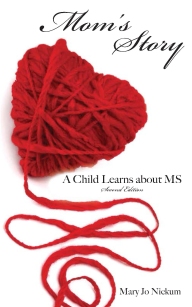Summary
- As part of a large-scale “Genes & Environment in MS” (GEMS) study to understand factors that lead to the development of multiple sclerosis, researchers analyzed the genes and backgrounds of individuals who had no symptoms of MS, but who had close family members with MS.
- Based on that analysis, researchers identified a group of 40 women at higher risk for developing MS, and 25 women at lower risk. Extensive neurological testing and MRI scanning uncovered possible neurological abnormalities in the higher risk group, and MRI abnormalities in a small proportion of both groups.
- “At this time, we are developing strategies to manage the risk of MS, but there is, as yet, no specific recommendation,” explains co-author Dr. Phillip De Jager. “Family members should be reassured that the vast majority of family members will not develop MS.”
- The team (including Zongqi Xia, MD, PhD, of Brigham and Women’s Hospital, and Daniel S. Reich, MD, PhD, of National Institute of Neurological Disorders and Stroke, Bethesda, MD) has published results in JAMA Neurology (published online January 17, 2017).
- This study was supported by the National MS Society and the National Institutes of Health, and the Society helped to recruit participants. Two of the study authors – Daniel S. Reich, MD, PhD, and Philip L. De Jager, MD, PhD – are winners of the prestigious Barancik Prize for Innovation in MS Research.
Background: An individual’s risk of developing MS increases if a close family member has MS. There is currently no way to predict which family members will develop MS. The goal of the Genes & Environment in MS (GEMS) study is to identify the genetic, environmental and immune profiles that may increase a person’s risk of developing MS. Researchers are recruiting 5,000 subjects who have at least one first-degree relative with a diagnosis of MS. The GEMS Study is gathering genetic material (DNA) and environmental exposure history from participants as well as blood samples and brain magnetic resonance imaging (MRI) as an option. Investigators are classifying participants using the Genetic and Environmental Risk Score for MS Susceptibility (GERSMS), an experimental approach which incorporates genetic information and environmental exposures to identify people at higher or lower risk of developing MS.
The Study: As part of this large-scale, ongoing study, researchers looked at 65 women who are first-degree relatives of people with MS. The GERSMS indicated that 40 of these women were at higher risk of developing MS, and 25 women were at lower risk of developing MS. These women underwent a comprehensive neurologic examination and MRI scans.
Women in the higher risk group had less than normal vibration sensitivity in their big toes, a finding that indicates potential nerve dysfunction. A small percentage of the women in both groups had more MRI abnormalities associated with MS than one would expect to find in the general population.
The team (Zongqi Xia, MD, PhD, of Brigham and Women’s Hospital, Boston, MA, and Daniel S. Reich, MD, PhD, of National Institute of Neurological Disorders and Stroke, Bethesda, MD) has published results in JAMA Neurology (published online January 17, 2017).
This study was supported by the National MS Society and the National Institutes of Health, and the Society helped to recruit participants. Two of the study authors – Daniel S. Reich, MD, PhD, and Philip L. De Jager, MD, PhD – are winners of the prestigious Barancik Prize for Innovation in MS Research.
Next Steps: In this study, women at high risk for MS showed possible early manifestations of the disease. “The goal of the Genes & Environment Study is to understand the sequence of events that leads someone to develop MS,” explains co-author Dr. De Jager. “At this time, we are developing strategies to manage the risk of MS, but there is, as yet, no specific recommendation. Family members should be reassured that the vast majority of family members will not develop MS.” He notes that the study did not test the possibility of preventive strategies, such as vitamin D supplementation. “Taking vitamin D is good for bone health, and MS family members should discuss taking such supplements with their physician.”
Read more about research to find the genetic and environmental underpinnings of MS
Posted in
multiple sclerosis,
National Multiple Sclerosis Society,
Uncategorized and tagged
family,
generic,
genetic risk factors,
MS,
MS Society,
National MS Society,
National Multiple Sclerosis Society,
NMSS,
research,
Studies,
symptoms,
women
